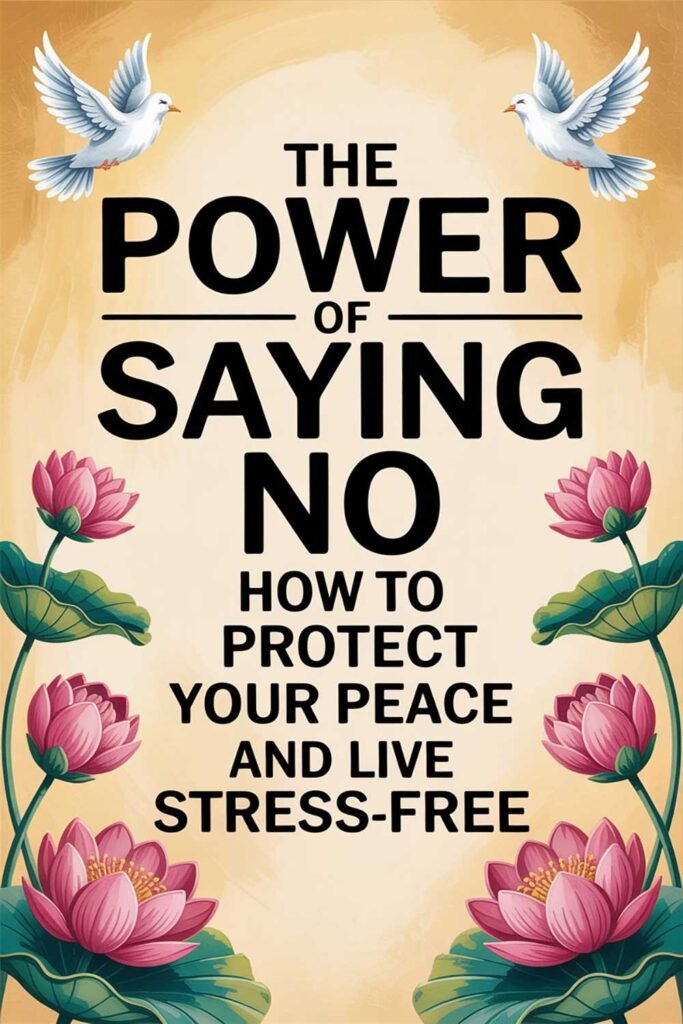14 Tips for Managing Stress in a Healthy Way
Stress is an unavoidable part of life, but how you manage it can make all the difference. When left unchecked, chronic stress can negatively impact your physical and mental health, leading to anxiety, high blood pressure, and even weakened immunity. The good news is that there are effective ways to reduce stress naturally and improve your overall well-being. Here are 14 science-backed tips for managing stress in a healthy way.

1. Practice Deep Breathing Techniques
Deep breathing activates the body’s relaxation response, lowering stress levels and calming the nervous system.
How to Do It:
- Try diaphragmatic breathing by inhaling deeply through your nose, expanding your belly, and exhaling slowly.
- Practice the 4-7-8 technique: inhale for 4 seconds, hold for 7, and exhale for 8.
Scientific Evidence:
A study in Psychophysiology found that deep breathing exercises significantly reduce stress and improve heart rate variability.
2. Engage in Regular Physical Activity
Exercise releases endorphins, which are natural mood boosters that help combat stress and anxiety.
Best Exercises for Stress Relief:
- Walking or jogging outdoors
- Yoga or Pilates
- Strength training or dancing
Scientific Evidence:
A study in The Journal of Psychiatric Research found that regular physical activity reduces cortisol levels and enhances emotional resilience.
3. Prioritize Quality Sleep
Lack of sleep can increase stress hormones and make it harder to cope with daily challenges.
Tips for Better Sleep:
- Stick to a consistent sleep schedule.
- Avoid caffeine and screens before bed.
- Create a calming bedtime routine with relaxation techniques.
Scientific Evidence:
Research in Sleep Medicine Reviews found that individuals who get 7-9 hours of sleep per night experience lower stress levels and better cognitive function.
4. Practice Mindfulness and Meditation
Mindfulness helps you stay present and reduces overthinking, making it easier to manage stress.
How to Practice Mindfulness:
- Start with 5-10 minutes of daily meditation.
- Focus on your breath and observe thoughts without judgment.
- Engage in mindful activities like eating or walking.
Scientific Evidence:
A study in JAMA Internal Medicine found that mindfulness meditation reduces stress and improves emotional regulation.
5. Stay Hydrated and Eat a Balanced Diet
Dehydration and poor nutrition can increase stress and anxiety levels.
Healthy Stress-Reducing Foods:
- Leafy greens and berries (rich in antioxidants)
- Nuts and seeds (high in magnesium)
- Fatty fish (rich in omega-3s)
Scientific Evidence:
A study in The Journal of Nutrition found that diets rich in whole foods lower cortisol levels and promote stress resilience.
6. Connect with Loved Ones
Social support plays a crucial role in managing stress and promoting emotional well-being.
Ways to Strengthen Social Connections:
- Call or visit a friend or family member.
- Join a community or support group.
- Engage in meaningful conversations regularly.
Scientific Evidence:
A study in The American Journal of Psychiatry found that strong social connections improve mood and reduce stress levels.
7. Engage in a Creative Activity
Creative outlets like painting, music, and writing provide an emotional release and promote relaxation.
Ways to Express Creativity:
- Start a journal to reflect on your emotions.
- Learn to play an instrument or try a new hobby.
- Experiment with painting, photography, or crafting.
Scientific Evidence:
Research in The Journal of Positive Psychology found that engaging in creative activities enhances emotional well-being and reduces stress.
8. Limit Caffeine and Alcohol Intake
Excessive caffeine can increase anxiety, while alcohol can disrupt sleep and worsen stress.
Healthier Alternatives:
- Swap coffee for herbal tea.
- Choose water or fresh juices instead of alcohol.
- Limit caffeine to one or two cups per day.
Scientific Evidence:
A study in The Journal of Clinical Psychology found that high caffeine consumption increases cortisol and stress levels.
9. Spend Time in Nature
Being outdoors in natural settings reduces stress, boosts mood, and enhances relaxation.
How to Incorporate Nature:
- Take a walk in a park or forest.
- Sit outside and practice deep breathing.
- Engage in outdoor activities like gardening or hiking.
Scientific Evidence:
Research in Environmental Health Perspectives found that spending time in green spaces significantly lowers stress hormone levels.
10. Listen to Music for Relaxation
Music has a powerful effect on mood and stress levels, helping to calm the mind and body.
Best Types of Music for Stress Relief:
- Classical or instrumental music
- Nature sounds or white noise
- Soft jazz or acoustic melodies
Scientific Evidence:
A study in The Journal of Music Therapy found that listening to calming music reduces anxiety and physiological stress responses.
11. Laugh More and Find Humor
Laughter lowers cortisol levels and releases feel-good endorphins, making it a natural stress reliever.
Ways to Add More Laughter to Your Day:
- Watch a funny movie or comedy show.
- Spend time with friends who make you laugh.
- Practice lightheartedness in daily life.
Scientific Evidence:
Research in Psychological Science found that laughter therapy reduces stress and improves overall well-being.
12. Practice Gratitude Daily
Focusing on gratitude shifts your perspective and helps reduce negative emotions.
How to Practice Gratitude:
- Keep a daily gratitude journal.
- Reflect on three positive things each day.
- Express appreciation to others regularly.
Scientific Evidence:
A study in The Journal of Personality and Social Psychology found that gratitude practices lead to lower stress and greater emotional resilience.
13. Try Aromatherapy for Relaxation
Essential oils can promote relaxation, improve mood, and reduce stress levels.
Best Essential Oils for Stress Relief:
- Lavender (calming and relaxing)
- Chamomile (reduces anxiety and promotes sleep)
- Peppermint (refreshes and relieves tension)
Scientific Evidence:
Research in The Journal of Alternative and Complementary Medicine found that aromatherapy significantly lowers cortisol levels and improves relaxation.
14. Set Realistic Goals and Manage Expectations
Unrealistic goals and perfectionism can increase stress. Setting achievable expectations helps reduce pressure.
How to Set Realistic Goals:
- Break big tasks into smaller steps.
- Focus on progress rather than perfection.
- Set deadlines that allow for flexibility.
Scientific Evidence:
A study in The Journal of Behavioral Medicine found that goal-setting and self-compassion reduce stress and enhance overall well-being.
Please Share This Article
If you found this article helpful, please share it with anyone who might benefit from learning how to manage stress in a healthy way.
Disclaimer
Results may vary. Always consult a doctor before making any health-related changes. This article is for informational purposes only and does not constitute medical advice.






